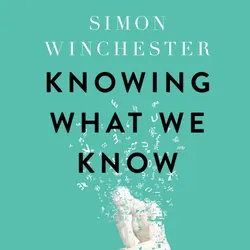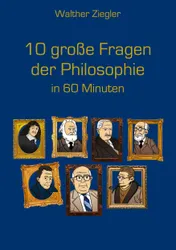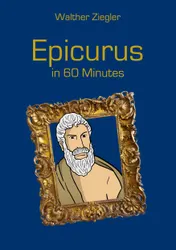Immanuel Kant is thought to be perhaps the greatest of all philosophers. And Kant did make, in the 18th Century, two great discoveries which engage us still today. Firstly, he founded the globally acknowledged ‘categorical imperative’ in moral philosophy; secondly, he became the first philosopher to succeed in answering that question as old as humanity of how knowledge arises in our brains. In his main work, the 1000-page “Critique of Pure Reason”, Kant analysed the working of Man’s thinking apparatus. He posed the critical question: what can a human being know with certainty and what can he not? His famous answer: Our reason can provide true and certain knowledge only of that which we have already perceived through our five senses (i.e. seen, heard, smelt, tasted, or touched). For this reason one cannot prove the existence of God, say, or really have “knowledge” of Him, because He is bodiless and imperceptible. Kant thus gave researchers, for the first time, a set of logical tools which was sensationally simple and yet quite perfect, and that still remains valid today and makes all scientific results achieved worldwide mutually comparable. Every theory, however good, had thenceforth to be proven in terms of actual sense-perceptions, for example through repeatable experiments. In his second main work, the Critique of Practical Reason, he tackled the equally ambitious question: ‘what is the right way for a human being to act?’ Is there a single valid standard for morally right action? Here too Kant provided a spectacular solution that is still passionately debated, globally, today. The book “Kant in 60 Minutes” explains both these major works of Kant’s in a lively way, using over eighty key passages from the works themselves and many examples. The final chapter on “what use Kant’s discovery is for us today” shows the enormous importance of his ideas for our personal lives and our society. The book forms part of the popular series “Great Thinkers in 60 Minutes”.
Kant in 60 Minutes
Teste 30 Stunden kostenlos
- Heute lesen und hören
- Keine Verpflichtungen, jederzeit kündbar

Mach jeden Moment zum Abenteuer
- Trag Hunderttausende Geschichten direkt in deiner Hosentasche mit dir
- Keine Verpflichtungen, jederzeit kündbar

Starten Sie noch heute mit diesem Buch für 0 €
- Hole dir während der Testphase vollen Zugriff auf alle Bücher in der App
- Keine Verpflichtungen, jederzeit kündbar
Autor*in:
Sprache:
Englisch
Format:

The Extinction of Experience : Being Human in a Disembodied World
Christine Rosen
audiobook
In Praise of Wasting Time
Alan Lightman
book
Critique of Pure Reason
Immanuel Kant
audiobookbook
The Sunken Gold : A Story of World War I Espionage and the Greatest Treasure Salvage in History
Joseph A. Williams
audiobook
Man-Made : How the bias of the past is being built into the future
Tracey Spicer
audiobookbook
The Scientist in the Crib
Alison Gopnik, Andrew Meltzoff, Patricia K. Kuhl
audiobook
Why We Can't Sleep : Women's New Midlife Crisis
Ada Calhoun
book
Knowing What We Know : The Transmission of Knowledge: From Ancient Wisdom to Modern Magic
audiobook
Eating the Dinosaur
Chuck Klosterman
audiobookbook
The Wires of War: Technology and the Global Struggle for Power
Jacob Helberg
audiobookbook
Innate : How the Wiring of Our Brains Shapes Who We Are
Kevin J. Mitchell
audiobook
The Feeling of Life Itself
Christof Koch
audiobook

Sartre in 60 Minuten
Walther Ziegler
book
Rom - die ewige Stadt regiert die Welt
Walther Ziegler
book
Griechenland - die Wiege Europas
Walther Ziegler
book
Kafka en 60 minutes
Walther Ziegler
book
10 philosophische Wege zum Glück in 60 Minuten
Walther Ziegler
book
Arendt en 60 minutes
Walther Ziegler
book
Arendt en 60 minutes
Walther Ziegler
book
Great Thinkers in 60 Minutes - Volume 5
Walther Ziegler
book
Great Thinkers in 60 Minutes - Volume 4 : Schopenhauer, Nietzsche, Wittgenstein, Kafka, Arendt
Walther Ziegler
book
Great Thinkers in 60 Minutes - Volume 3 : Confucius, Buddha, Epicurus, Descartes, Hobbes
Walther Ziegler
book
10 große Fragen der Philosophie in 60 Minuten
Walther Ziegler
book
Epicurus in 60 Minutes : Great Thinkers in 60 Minutes
Walther Ziegler
book
